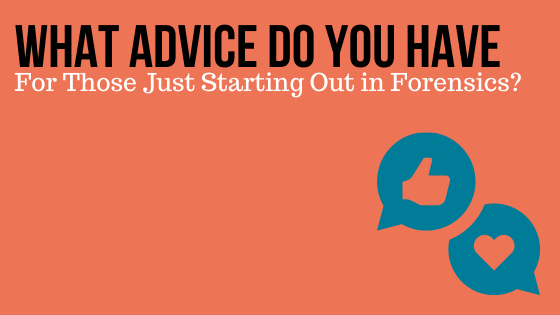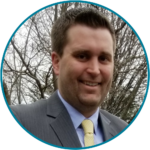Maybe you’ve just graduated and are looking for your first job in forensics, or maybe you’re just starting work as an analyst. Either way, trying to find your footing can be tough. That’s why we’ve asked our ISHI 32 speakers to share some pearls of wisdom for those just starting out in the field of forensics. Do you have tips to add? Join the conversation on our social media pages!
If you already know the answer, don’t bother doing that experiment. Think of a better one.
Ed Green, Astrea Forensics
Graduate school is always a big decision. The best advice I suggest is to treat it like a job. Make yourself deadlines and goals and stick to them. The typical week should be working on your classes, research, and writing from 8 am to 5 pm Monday through Friday. Focusing on graduate school as a job meant that I had time for myself and my family. This approach also helped me prevent burnout early on in my program.
Allison Sherier, UNTHSC
Work hard and be innovative. The forensics field can be demanding and stressful, but a strong work ethic and positive attitude can take you far in your career. Don’t be afraid to bring up new ideas as some of the most impactful programs/research I have been a part of started as blue sky ideas that resulted in successful and impactful projects.
Dane Plaza, Bode Technology
Be open to change because forensic science is an ever-evolving field. Own up to your mistakes, and don’t be afraid to ask questions. If you have a passion for forensics, keep up with it.
Emily Simek and Lies Janssens, Utah Bureau of Forensic Sciences
The best advice I ever received also happens to be the same advice that I give today. To never give up and keep on trying, that once you get your foot in the door even if it is at the bottom of the barrel in an entry level position that is all you need to start a career in this industry.
Tarah Nieroda, DNA Labs International
Take every opportunity! Candidates with at least some experience tend to shine, not to mention many interns end up getting hired by their host laboratory.
Rachel Oefelein, DNA Labs International
The best advice that I received when I first decided I wanted to study forensics over fifteen years ago was to first get a strong foundation in the natural sciences. As you begin to identify your area of interest I would recommend talking to as many people as possible who do what you want to do. This will help you learn how to follow their path and/or gain better insights into the reality of their job.
Elena Zavala, Max Planck Institute
I’m on the R&D side of things, so the most important advice I can give is to be creative in how you approach problems and constantly check your assumptions against the data.
Curt Hewitt, Signature Science
I would say that passion for the topic goes a long way in the field of forensics, and you’re likely to meet a lot of very passionate people. Try to network as much as possible. Every person I have met in the field has given me fresh insights and inspired me. One of the best pieces of advice I was ever given was to always take any opportunity to present your work – even if you’re nervous, each presentation is practice for the next one.
Laurence Devasse, King’s College London
While in graduate school at Stanford, the late Sam Karlin told me: To be a good applied mathematician, you need to know ten times as much math as you are going to use.
Lawrence Wein, Stanford University
Learn new technologies and listen to your seasoned colleagues.
Jianye Ge, UNTHSC
WOULD YOU LIKE TO SEE MORE ARTICLES LIKE THIS? SUBSCRIBE TO THE ISHI BLOG BELOW!
SUBSCRIBE NOW!














